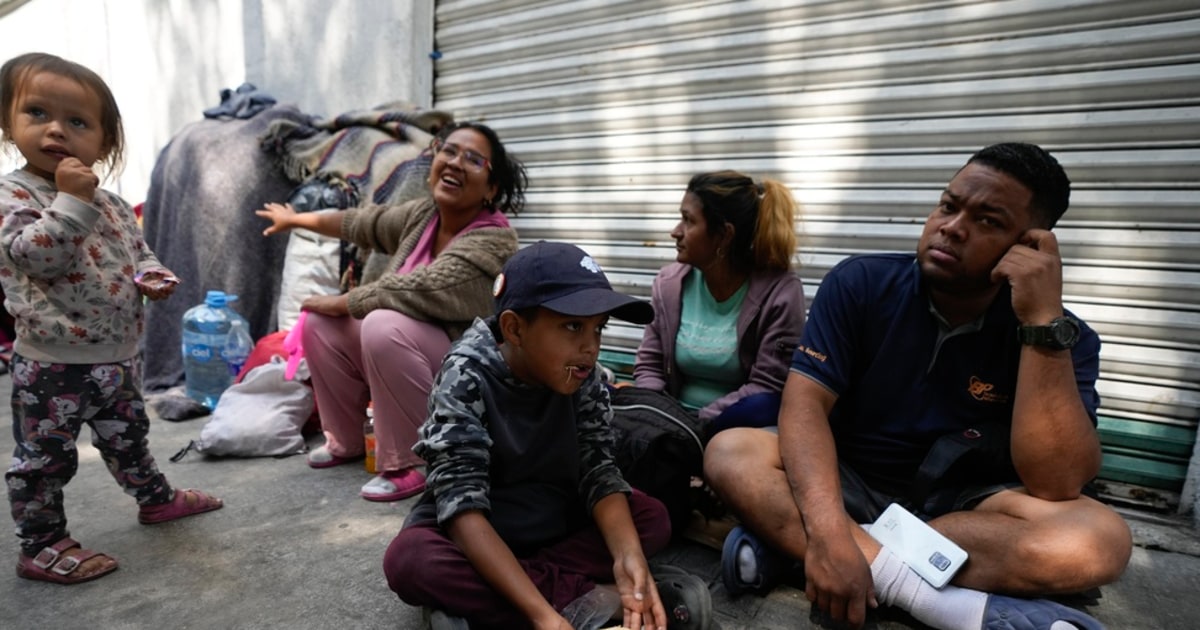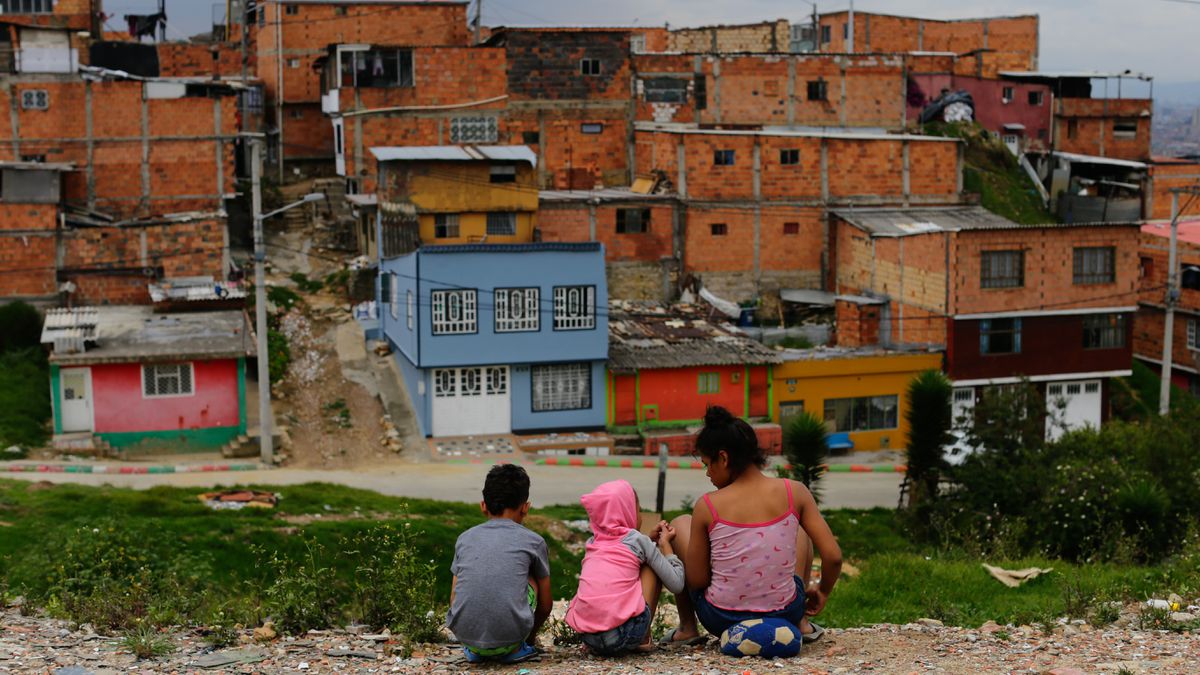Venezuelan migrants pass through the city of Tunja, on their way to Bogotá. Ivan Valencia / AP
The dramatic situation of the majority of Venezuelans in Colombia does not give truce.
The anguish of migrants, who face high levels of informality, have been exacerbated by the economic ravages caused by the pandemic.
Venezuelans - particularly women - have a much higher probability of being working in the sectors most impacted by the coronavirus, warns the report
The effect of covid-19 on the economic inclusion of Venezuelans in Colombia
, published this Wednesday.
The document is part of the Let Them Work initiative of the Center for Global Development (CGD) and Refugees International.
With 1.7 million migrants, Colombia is by far the main destination for the more than five million Venezuelans who have left their country in recent years, driven by hyperinflation, insecurity, or food and medicine shortages.
As part of a policy of reception and migration flexibility, "the Colombian Government has had an open and constructive approach towards this population," which has included work and residence permits, as well as the provision of humanitarian relief, the authors of the report point out. Jimmy Graham and Martha Guerrero Ble.
However, they warn, obstacles in terms of economic inclusion persist for Venezuelans in Colombia, who earn less than Colombians, face high levels of poverty, the risk of being evicted from their homes and food insecurity.
The pandemic "has aggravated these challenges, increasing unemployment and intensifying the precarious situation of Venezuelans," they point out.
Colombia accumulates more than 30,000 deaths from coronavirus, more than 900,000 recovered patients and 67,000 active cases.
After months of strict confinement and social distancing measures, in addition to the closure of borders, the country is going through a gradual process of economic reactivation.
The slowdown, however, has been felt strongly.
At the end of 2020, the Colombian economy will fall by 8.2%, according to the latest projections from the International Monetary Fund (IMF).
Unemployment, the traditional Achilles heel of one of the most stable economies in the region, soared above 20% in the middle of the year - in August it stood at 16.8%.
"As a result, Venezuelans have been led to a growing state of economic precariousness, particularly since they are more likely than Colombians to work in sectors that have been heavily impacted by the pandemic," the report highlights.
Venezuelans earned on average 30% less than Colombians in October 2019, before the outbreak of the pandemic.
Organizations that work with migrants estimate that about nine out of ten feed the ranks of informality.
Among the multiple barriers they face are the lack of legal access to the formal labor market and financial services, discrimination both at the time of being hired and in their workplaces, and a high concentration of Venezuelans in areas with relatively few job opportunities. .
Many migrant families have been made homeless.
"According to surveys conducted before and after the imposition of confinement measures carried out by the Interagency Group on Mixed Migratory Flows (GIFMM), the percentage of Venezuelan families consuming three meals a day has fallen from 69 to 26%," he warns the report.
Migrants play a crucial role in labor markets and can help their host communities recover from the economic crisis caused by the pandemic.
The report highlights that President Iván Duque tried to implement measures to accelerate the validation of the titles of Venezuelan health professionals, but faced resistance from the medical community and withdrew from the initiative.
"The recurring inability of medical professionals to validate their credentials is part of a broad set of barriers that limit economic inclusion for Venezuelans in Colombia," he says.
The case of health professionals is an example of the persistence of political obstacles to advancing the economic inclusion strategy, exacerbated by the increase in national suspicion that can translate into outbreaks of xenophobia.
"We have to refine the ability to identify to the public opinion the contribution of migrants always, but also during the pandemic," Felipe Muñoz, the outgoing government advisor for migration from Venezuela, pointed out to this newspaper in August before leaving his position to assume as head of the Migration Unit of the Inter-American Development Bank (IDB).
"If Venezuelans had the possibility to apply their skills in the labor market, they could increase the productivity of companies, resulting in higher incomes and more employment opportunities for locals," the report says.
If all barriers to the economic inclusion of migrants were reduced, according to this analysis, the average monthly income for Venezuelans would grow from 131 to 186 dollars, which would translate into an increase of at least 996 million dollars in annual GDP. from Colombia.
Likewise, the total number of formal Venezuelan workers would increase from 293,060 to 454,107, the report highlights.
They would also spend more.
"With small businesses struggling, the potential boost in productivity that Venezuelans offer will be much needed," the authors conclude.
Greater inclusion can support Colombia's economic recovery.

/cloudfront-eu-central-1.images.arcpublishing.com/prisa/MPD4PC2EJJAGDCKTBGOXSXSQ5Q.jpg)

/cloudfront-eu-central-1.images.arcpublishing.com/prisa/66E5ZJUDZGT5AWIW7USKEZRE4A.jpg)

/cloudfront-eu-central-1.images.arcpublishing.com/prisa/QTVF3EOGLFBTPJL3YXHGH4CEFE.jpg)









